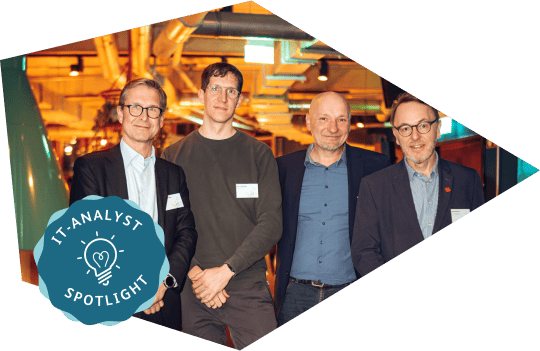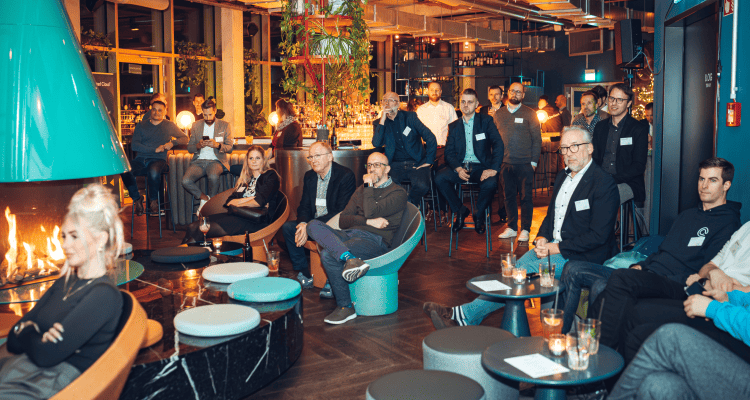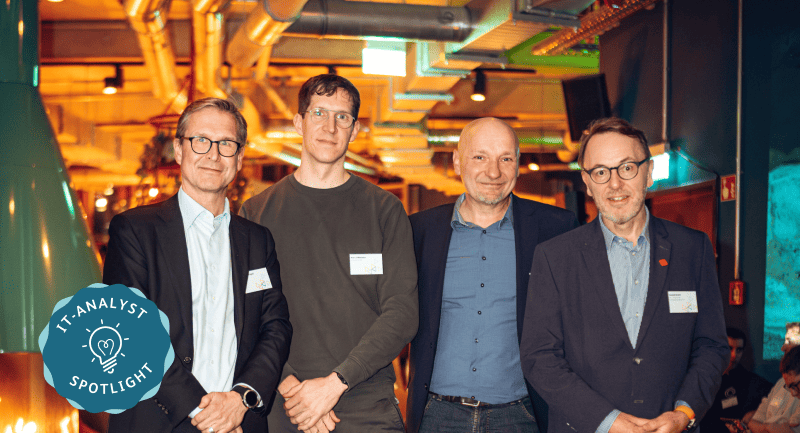
Prospects 2024:
The cloud is getting “edgier”
Will the year 2024 bring a breakthrough for edge computing and permanently change the cloud business? This question was the focus of the OVHcloud Local Summit on November 30 in Cologne. Which is hardly surprising: According to OVHcloud, the “entry into the high-growth edge computing market” was ultimately a key reason for the acquisition of gridscale in summer 2023. The “Local Zones ” – an innovative edge services offering developed jointly with gridscale – were also presented for the first time at the customer event.
IT analyst Dr. Andreas Stiehler, who took part in the OVHcloud Summit panel discussion himself, summarizes his key findings from the event in his outlook for the edge year 2024.
Inventory 2023
Cloud migration in full swing,
Edge still at the beginning
For the past year, I have been working intensively on the topic of edge computing and its implications for the German SME market as an author and analyst on behalf of gridscale. Together with gridscale Managing Director Henrik Hasenkamp, we examined studies, evaluated architecture models and spoke to market participants. The result is a new series of analyses that already includes three publications. At the same time, we were convinced that the topic would become increasingly important in the near future.
So far so good. But how has the edge market developed in recent months?
Honest answer: We are still talking about a “tender plant” here.
While cloud migration is in full swing today, the implementation of edge computing is still in its infancy.
Innovative data-based business models and large-scale automation solutions that require an edge architecture to operate have so far only been implemented by a few companies and are mostly still in test mode.

OVHcloud solves a bottleneck with the expansion of local zones
The fact that the next stage of digital transformation has not yet been ignited in many cases is also and in particular due to the fact that technology providers’ offerings are often still inadequate or immature. In the showroom, the intelligent management of store shelves, industrial plants or agricultural operations, as well as the use of AI applications for the early detection of diseases or the control of autonomous vehicles, looks wonderfully simple.
In practice, however, numerous obstacles have to be overcome in order to implement such use cases. Masses of data have to be generated and processed. However, this requires a highly efficient computing infrastructure, which is not (yet) available as standard.
Against this backdrop, it is remarkable that OVHcloud, a leading European cloud provider, has now announced an ambitious program to launch local data centers with lower server capacities near major cities and industrial centers.
In fact, OVHcloud is already operating two of the so-called “local zones”, in Brussels and Madrid, at the start of 2024. Further local zones are to be added on a weekly basis in 2024.
Companies doing business near such a local data center are now able to run applications on site with minimal latency using the locally provided OVHcloud Infrastructure Services. Importantly, infrastructure services from the local zones can be flexibly combined with those from the central OVHcloud data centers and the overall solution can be managed holistically (with the help of the integrated gridscale operating system).
What’s more, according to the OVHcloud managers, an entire network of local zones will be available to companies for the provision of infrastructure services in the foreseeable future. This makes it possible for customers to operate latency-sensitive applications (e.g. streaming or gaming) across the board or offer them to customers without any loss of quality.
The expansion of the local zones by OVHcloud resolves a classic bottleneck that stands in the way of the realization of innovative use cases.

Outlook 2024
The cloud edge continuum unfolds
The development of data-based business models and the expansion of automation activities are therefore likely to be significantly accelerated sooner or later by the expansion of local infrastructure service offerings. That’s good! After all, we are currently experiencing the dynamics that a functioning offer can trigger for the entire market development in the AI environment – where the launch of ChatGPT created a veritable hype.
Can we expect an edge hype in 2024, similar to the cloud hype a few years ago or the AI hype today? Rather not. Setting up the Local Zones network will certainly take some time, as will the establishment of innovative solutions based on it. It is also unlikely that “edge” will become as relevant in communication as the term “cloud” – but that is not a bad thing. Edge development is not even aimed at replacing the cloud, but rather at creating more possibilities, a space of possibilities towards a cloud-edge continuum.
It can therefore be expected that local infrastructure service offerings will gain relevance in the computing mix of companies as local zone networks expand – and that the cloud paradigm will be softened in favor of an ever-expanding cloud edge continuum. You could also say that the cloud will be “edgier” in 2024. In conjunction with this, the use of AI to expand data-based business models and automation solutions is also likely to increase further – keyword: Edge AI. And perhaps we will look back on 2023 as the year in which the next stage of digital transformation was ignited.
And another prediction that we are 100 percent sure of: We will continue to provide our readers with analyses and assessments of current trends and innovations relating to the operation and management of IT infrastructure in 2024. 😊
Until then, we wish you happy holidays!

Dr. Andreas Stiehler
Dr. Andreas Stiehler accompanies as IT analyst, author and consultant
research and consulting projects for more than 20 years
digital change. His core topics here are Digital Work &
Digital Workplace, customer service in the digital transformation and the
Management of knowledge work(s). The economist with a doctorate
with a focus on behavioral economics is committed to this,
to take a holistic view of the digital transformation and
to focus more on people.
Profile on LinkedIn
